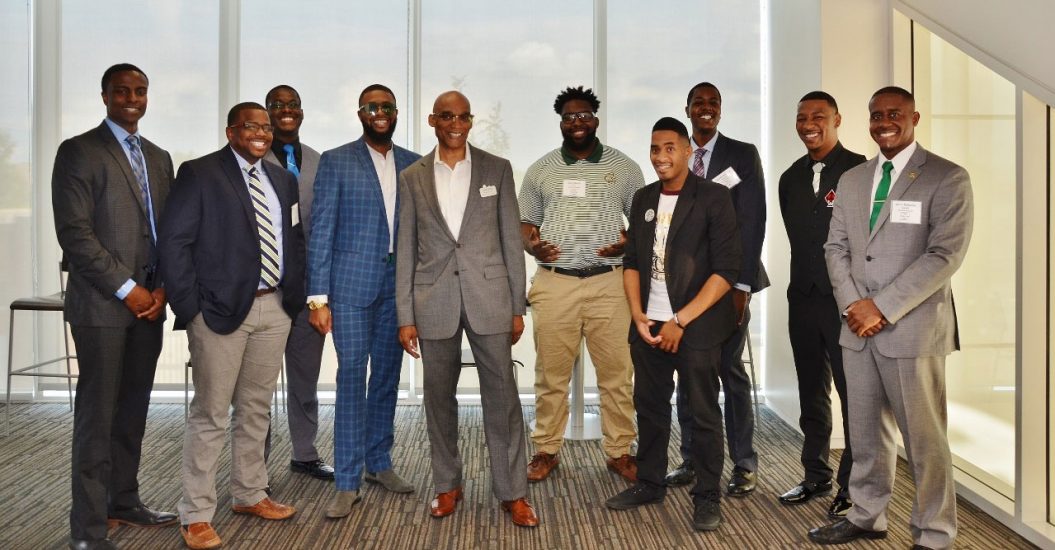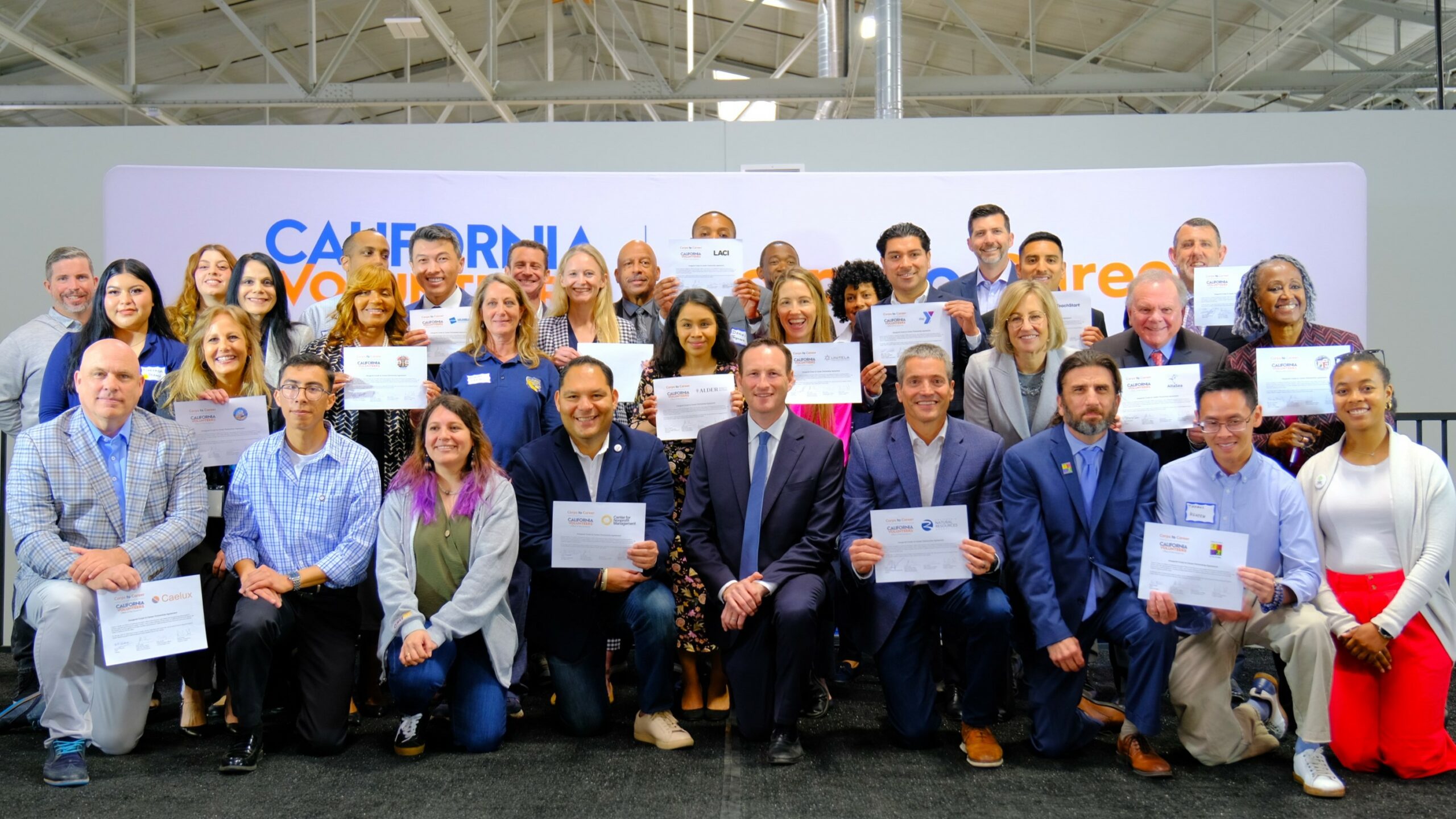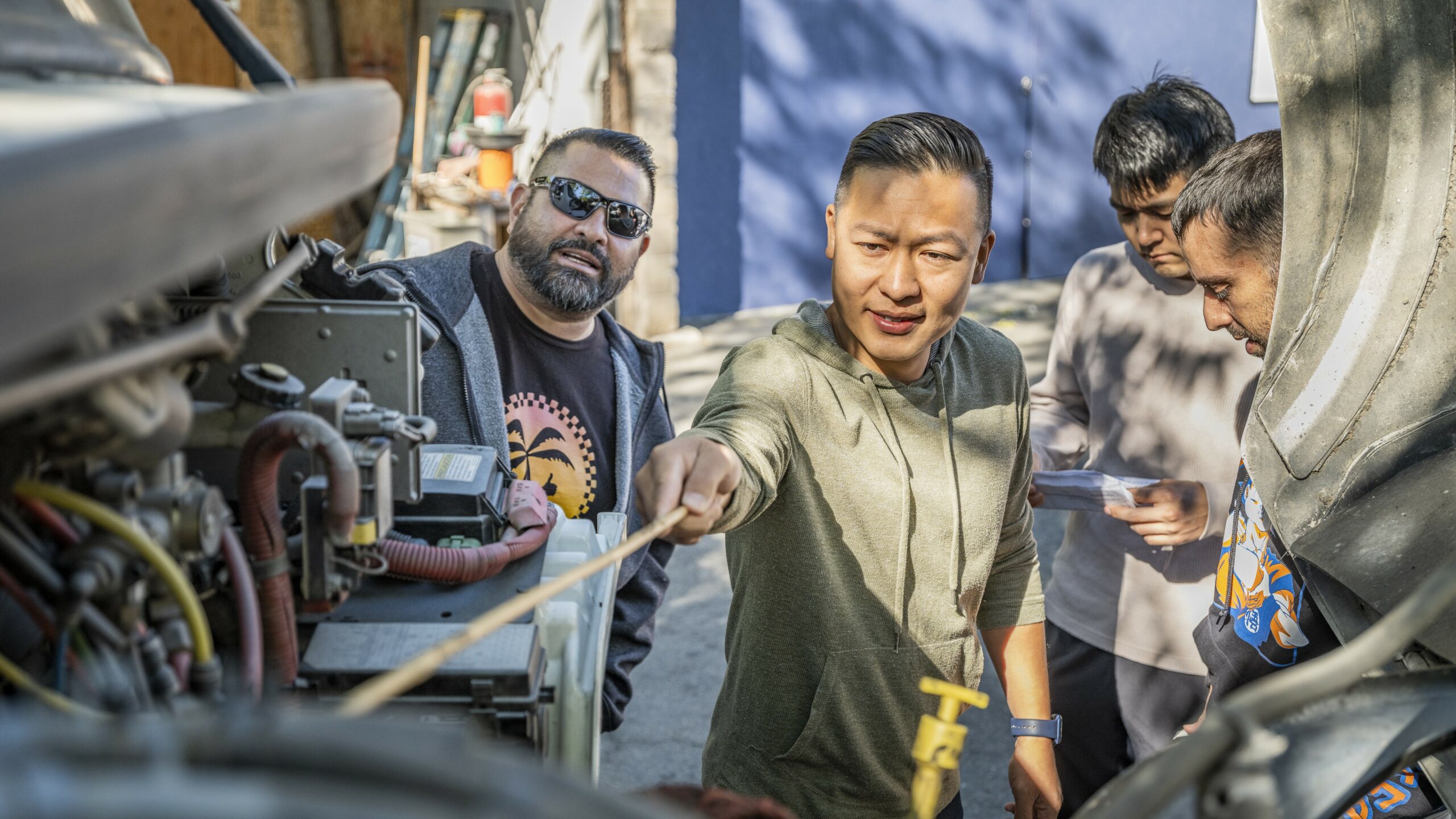As more jobs are automated, globalized, or require more education than they once did, a bet that has always been considered very risky — creating your own job by starting a business — is starting to look like a safer path to a secure future.
Henry Rock, executive director and founder of City Startup Labs, an entrepreneur’s academy based in Charlotte, N.C., sees how many jobs small businesses create in the American economy, but he noticed that the face of entrepreneurship — at least the Silicon Valley variety — didn’t seem to have space for young, black males. He decided not only to create that space but to try to change the way young, black men think. In a society that often demonizes them, Rock wants young black males to think of themselves as businessmen — as people who build things and solve problems.
“A lot of [young, black men] are getting a lot of attention for a lot of the wrong reasons,” Rock said in an interview. “Our desire is to re-imagine them as a new class of entrepreneurs, as we like to say — and then have them re-imagine themselves that way as well.”
In interviews and speeches, Rock often points out that Charlotte — a city that is 35 percent black — ranks dead last out of 50 major U.S. cities in terms of upward economic mobility. According to research by professors at Harvard University and the University of California-Berkeley, only 4.4 percent of children born to families in the bottom one-fifth of city earners will advance to the top one-fifth of earners as adults, compared to nearly 13 percent in San Jose, California.
City Startup Labs aims to teach 18- to 34-year-old would-be moguls how to build a business plan, network, and secure funding, but also aims to increase their value as employees — something Rock calls intrapreneurship. At the end of the six-month program, students participate in a pitch competition, and the winners get prize money to put toward their ventures and space in a co-working location.
Now, the program has joined forces with the University of North Carolina at Charlotte to create an incubator called The Center of Excellence for Entrepreneurial Competency, Innovation and Leadership.
Founder and employee
Tazje Johnson, 25, has used lessons from City Startup Labs to build two businesses and advance in his day job. After moving to Charlotte in 2013, he got an entry-level job at AutoZone, hoping to supplement his income while studying to be an occupational therapist at Belmont Abbey College. He heard about City Startup Labs on the radio one morning and applied for the program, having always wanted to start his own business.
Today, Johnson is running two businesses. The first, A Million Miles Services, is a concierge/personal shopping service for senior citizens and won second place in City Startup Labs’ BizPlan and Pitch competition.
In practice, however, Johnson found it difficult to get nursing homes and senior citizen centers to take advantage of his services. Inspired by his mother, a nurse, he started a second business called Scrubbed Up, which collects and launders used scrubs and sells them to healthcare companies at a fraction of the cost of new gear. Succeeding in one business, he says, helped him get a foot in the door for the other.
At AutoZone, Johnson used his entrepreneurial spirit and the lessons from City Startup Labs to become a store manager — and not just any store manager. Johnson has been in AutoZone’s President’s Club, which CEO William Rhodes has said includes only the company’s “best and brightest store managers” across the country.
Johnson looks for ways to make the store more successful, absorbing his company’s strategic goals and finding ways of his own to make his mark. While AutoZone management encourages managers to interview three new people a month, Johnson tries to do five a week, looking for people with an ownership mentality that matches his own. “I ask people, “Are you here for a job, or are you here to leave your mark?” he said. “If you want $10 an hour, I’d give it to you right now, but if you want to build something with me, let me know.”
Studying, running two businesses, and managing a store comes at a price. Johnson sleeps three hours a night and takes 20-minute naps every four hours to have more time for his businesses and his job.
“A lot of times people quit their jobs to run their business, and either they run out of capital or they don’t want to do it anymore,” Johnson said. “I’m using this job as my financial tool— it’s almost like a loan. That’s motivation to go to work every day. I know I have to go to work to make this business go.”
From finance to online education
Jarron Thomas, a 26-year-old City Startup Labs graduate, agrees. Thomas works as a risk management consultant for financial institutions during the day, but in his off-hours, he’s working on an online education startup called Jump.
Coming into Rock’s program, Thomas wanted to hone an idea he and a friend had, creating a local bazaar for Charlotte entrepreneurs. But City Startup Labs encouraged him to think about what he truly was passionate about — things like 100 Black Men of America, an organization whose board he serves on that is dedicated to enhancing opportunities for African-American communities. The Charlotte chapter of the organization had a robotics program for young people, but Thomas said that it was hard to get anyone interested.
That made Thomas think about his own childhood. Academically gifted, Thomas attended magnet schools, skipped a grade and took honors classes, but it was hard for him to envision his future or find people who shared his interests.
“I was as excited about school when I was at school, but not as excited when I got home,” he said. “I didn’t feel a lot of people I could connect with who looked like me.”
Jump, which won the 2014 BizPlan and Pitch competition, is a network where students can pose questions about science, technology, engineering, and math (STEM) topics and create their own learning module videos to answer other students’ questions — a social ecosystem in which kids teach each other about things that interest them, even if they’re not finding what they need in their schools or neighborhoods.
The education and mentoring he received at City Startup Labs have been crucial in developing the platform, which hasn’t yet launched to the public.
“Rock was very hard on us, and at times I didn’t understand why,” Thomas said. “But he really understood what was at stake. He understood that it was imperative that we were successful. He understood how underrepresented we are in the entrepreneurial community.”
The tough love was important to Thomas, he said, because school and sports had always come easily to him. Entrepreneurship was a new beast, however — one that always demanded more attention, one that never took the night off, never mind a whole day. It is one of the hardest things he’s ever done.
“I had hoped I would be a full-time entrepreneur at this point,” he said. “But [City Startup Labs] reinforced that my attitude will determine my altitude. As long as I stay positive and I keep pressing when a door closes, another door will open. That’s why I’m still working on the idea today.”











